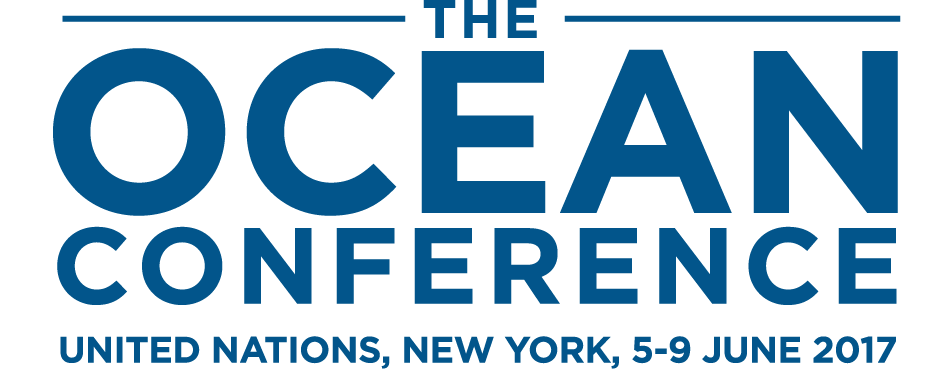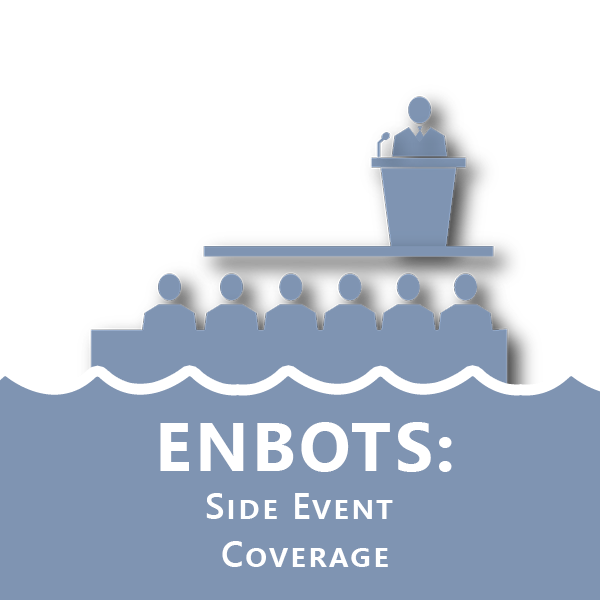Daily report for 8 March 2018
1st Part of the 24th Session of the International Seabed Authority
On Thursday, the Council of the International Seabed Authority (ISA) discussed a draft on compliance, and continued consideration of the draft regulations on the exploitation of deep-seabed minerals in an informal format. Discussions focused on:
- what constitutes non-compliance by contractors and reporting obligations;
- the need to strengthen the provisions on environmental protection in the draft regulations; and
- the role of regional environmental management plans in the draft regulations.
COMPLIANCE
Algeria, for the AFRICAN GROUP, recommended inviting the Council to “request,” rather than “consider requesting,” further information on the reasons for delays in implementing work plans and for reductions in projected expenditure. He also suggested limiting the Secretariat’s discretion regarding the need to provide an annual report to the Council identifying instances of alleged non-compliance and the regulatory action that is “recommended to be taken,” including any monetary penalties to be imposed by the Council, which was supported by BRAZIL, AUSTRALIA, NORWAY, and ARGENTINA. CHINA underscored that activities in the deep seabed should also be encouraged, and compliance should be dealt with in strict accordance with UNCLOS. MEXICO proposed that management controls for contractors include risk mapping, periodic reviews, and internal and external audits. The Deep Sea Conservation Coalition (DSCC) questioned the ISA’s capacity to independently verify contractors’ reports, emphasizing the role of sponsoring states in this respect.
BRAZIL suggested deleting, supported by CHINA, or redrafting, supported by NORWAY, a draft recommendation inviting the Council to request contractors to provide more information on the reasons for delays in implementing work plans, noting that usually the Secretary-General or the LTC Chair contact the contractors. BRAZIL questioned a request for sponsoring states to provide details of any measures taken to ensure compliance under exploration contracts, as this should only apply in cases of non-compliance. TONGA suggested clarifying the type of information to be submitted by sponsoring states and the form of submission. Noting that previous cases of non-compliance have been of limited gravity, GERMANY indicated that the German contractor’s exploration contracts and activities are publicly available. ITALY proposed that reporting should include comprehensive and understandable information to the general public.
INDIA underscored the need to: take into account contractors’ views; and, with CHINA, distinguish inadequate or incomplete performance against an approved work plan from non-compliance. TONGA called for a validation process to ensure that alleged non-compliance is indeed non-compliance. NORWAY pointed to communicating cases where alleged non-compliance was disproven. CHINA said that reporting should only reflect cases of non-compliance on an ad hoc basis. BRAZIL questioned whether unforeseen activities extending beyond the work plan could be considered as non-compliance.
FRANCE called for: a clearer understanding of the form and function of monetary penalties; and, with ITALY, attention to “alleged” non-compliance and the issue of evidence. Opposing, the AFRICAN GROUP maintained that non-compliance is alleged until affirmed by the Council. Secretary-General Lodge clarified that only alleged compliance can be reported and no sanction can be imposed until due process has been exhausted.
In the afternoon, delegates considered a revised draft on compliance for insertion in the Council President’s statement on the work of this meeting. The AFRICAN GROUP, opposed by BRAZIL, requested reinstating a request to sponsoring states to provide details of any measures taken to ensure compliance under an exploration contract. The UK questioned the appropriateness of language on making contracts publicly available. CHINA suggested adding reference to sponsoring states’ responsibilities in relation to addressing respective responsibilities of the Secretariat, the LTC and the Council. CAMEROON proposed inviting sponsoring states to provide information on measures taken to ensure compliance, for inclusion in the Secretary-General’s report that will identify cases of non-compliance. Chair Myklebust proposed informal consultations on these issues.
DRAFT EXPLOITATION REGULATIONS
ENVIRONMENTAL POLICY: The Secretariat invited the Council to reflect on the need for, and content of, an environmental framework and how the framework, particularly regional environmental management plans (REMPs), will be incorporated in the draft regulations. The AFRICAN GROUP suggested that the LTC develop the content of a robust environmental framework. Expressing concern about less restrictive provisions in the draft regulations than those on exploration, BRAZIL recommended: increasing references to common heritage; with POLAND, defining exploitation areas, which should only cover areas already under exploration; and avoiding an excessive assignment of responsibilities to the Secretary-General. ARGENTINA focused on inconsistencies in the regulation on assessment of applicants and on accompanying documents for an exploitation work plan. GERMANY highlighted: the need to improve provisions regarding best environmental practices and best available technology; the content of the environmental management and monitoring plan; as well as the importance of structured and comprehensive regulations for establishing a level-playing field.
Underscoring the importance of establishing an environment management strategy, JAMAICA called for: coherence between environmental regulations and standards applicable within national jurisdiction with those being developed for areas beyond national jurisdiction; deciding upon whether environmental considerations will be dealt as a separate set of regulations or as part of the exploitation regulations and in what form; and, with the UK, a single, binding, uniformly applied standard to ensure a level-playing field. JAPAN suggested: setting out new standards in an annex that could be amended as needed; and focusing on technology to enhance environmental monitoring during exploitation. POLAND favored incorporating technical and administrative details in the draft regulations, clearly defining “who will be in charge of implementation.”
AUSTRALIA stated that regulations cannot be “rushed” at the expense of core environmental principles and called for the incorporation of the precautionary approach and further definition of standards and rules on how to apply these regulations, as well as greater guidance on how to conduct independent assessments. BANGLADESH suggested: ensuring that contractors have the capacity to meet environmental standards; independently reviewing monitoring programmes; further developing definitions on best environmental practices and standards, taking into account scientific data and developments in other processes; and ensuring coherence with the UN negotiations on marine biodiversity of areas beyond national jurisdiction (BBNJ).
CHINA called for the LTC, and possibly a workshop, to consider coherence between preservation reference zones (PRZs) and impact reference zones (IRZs). Calling for an effective, robust and balanced environmental protection framework, ensuring inclusive public consultation, TONGA suggested the development of an environmental policy framework based on best available science and the precautionary principle, taking into account the unique characteristics of each geographical location and marine ecosystem. Cautioning against the use of chemicals in deep-seabed mining, CHILE requested that contractors explain their mining procedures as part of the contracting process. JAMAICA underscored the urgency to finalize the regulations.
Prioritizing the minimization of negative environmental externalities and societal costs, taking into account inter-generational equity, ITALY underscored the need for: clear monitoring plans regarding chemical emissions, vibrations, geo-monitoring and seabed deformation; health and safety regulations; risk assessment and management plans; liability; and, with JAPAN, appropriate communication and outreach. Stressing that the discussion should be about common heritage and not solely about trade, CAMEROON highlighted: verification to allow for monitoring, inspecting and evaluating; economic studies to take into account also potential negative effects on land-based mining activities; and the scientific capacity, enabling follow-up activities and potentially the establishment of the Enterprise.
The PEW CHARITABLE TRUSTS stressed: the need to require contractors to consider new environmental information annually; the importance of real-time data from vessels; the problematic nature of a restrictive definition of “interested persons”; environmental regulations as a living document, capable of absorbing new scientific information and including REMPs; integration of ecosystem services valuations in the calculations; and intergenerational justice. IUCN emphasized: knowledge gaps in current understanding of the deep ocean; the importance of a precautionary approach; and the need to respect UNCLOS Article 145 obligation to ensure the “effective protection of the marine environment from harmful effects” that may arise from deep-seabed mining. The DSCC raised concerns about marine biodiversity loss and the gaps in the financial models with regard to environmental costs.
Discharges: The NETHERLANDS and the SARGASSO SEA COMMISSION proposed regulating the dumping of waste from deep sea mining in the regulations, following the approach of the London Dumping Protocol. The REPUBLIC OF KOREA suggested: further elaborating the exceptions for discharges, noting that they should be restricted on a precautionary basis, but not completely prohibited; collaborating with the International Maritime Organization (IMO) on the implementation of the London Dumping Protocol; further deliberating the duration of environmental liability insurance for exploitation contracts; and continuing a regular review process after ten years from the commencement of commercial production.
REMPs: BELGIUM prioritized consideration of REMPs in developing the draft regulations. The AFRICAN GROUP suggested requesting contractors to propose activities within the framework of REMPs. Considering REMPs a prerequisite for the precautionary approach, GERMANY recommended: with PANAMA, adopting them prior to granting exploitation licenses; and holding targeted workshops to develop relevant methodology. JAMAICA suggested feeding REMP outcomes into a strategic environmental management plan. AUSTRALIA favored establishing a scientific body to evaluate REMPs, whereas JAPAN preferred instead requesting scientific evidence to support member states’ proposals for publication on the ISA website. SINGAPORE encouraged better understanding of the relationship between REMPs, guidelines and standards, as well as of the timeframe for REMPs’ development. CHINA suggested developing REMPs holistically, expressing openness to including them in the regulations.
The UK proposed addressing the link between REMPs and the ISA’s environmental policy, welcoming holding relevant workshops. TONGA highlighted information and data collection in relation to REMPs, noting they are instrumental for environmental impact assessments (EIAs), environmental impact statements and environmental management plans.
EIAs: FRANCE requested reference to regional conventions addressing marine ecosystems and attention to potential mitigation activities. PANAMA emphasized that contractors should be required to submit an EIA, which provides for mitigation and compensation measures.
LEGAL STATUS AND ROLE OF STANDARDS AND GUIDELINES: Emphasizing the need for flexibility to balance competing interests, SINGAPORE called for standards and guidelines, which can be easily amended, and a stable and predictable regulatory framework. She proposed: a fixed review period for the guidelines; grandfathering certain standards for early adopters; and developing a preliminary list of matters to be covered by the standards.
GERMANY supported: legally binding standards for contractors; a review mechanism, which does not entail reopening the regulations; revising standards to reflect technological advances; and looking at the IMO’s experience to determine a suitable process for the development of standards and guidelines. CAMEROON emphasized that standards and recommendations need to be binding, transparent and applicable to all. INDIA called for standards and guidelines to be site- and resource-specific, flexible and designed to incentivize efficient and environmentally friendly technologies.
IN THE BREEZEWAYS
As participants continued to delve into the building blocks of the draft exploitation regulations, environmental provisions grabbed the lion’s share of attention. After interventions touched on broad environmental policy and on specific elements of environmental protection needed in the draft regulations, participants went home with mixed feelings. “We still have to agree on the level of stringency, as well as the form and legal status, of these environmental provisions,” a delegate quipped. Another participant sounded concerned: “We are addressing the balance between economic development and environmental protection, but recent history is filled with imbalances and there are no guarantees that we’ll get it right.” Looking ahead, a puzzled delegate mused: “We are still in a scene-setting phase. But some delegations seem to call for a speedy finalization of the regulations, while others prioritize the robustness of the environmental provisions.”
ENB SUMMARY AND ANALYSIS: The Earth Negotiations Bulletin summary and analysis of the first part of the 24th Annual Session of the International Seabed Authority will be available on Monday, 12 March 2018, online at: http://enb.iisd.org/isa/2018/
-->
Specific funding for coverage of the Ocean Conference - June 2017, has been provided by the
XXX, XXX, and XXX
-->
IISD Reporting Services is a division of the International Institute for Sustainable Development (IISD).
Earth Negotiations Bulletin (ENB), ENB+, and Knowledge Management for Sustainable Development
are branches within IISD Reporting Services.
© 1992-2018, IISD Reporting Services. All rights reserved.







